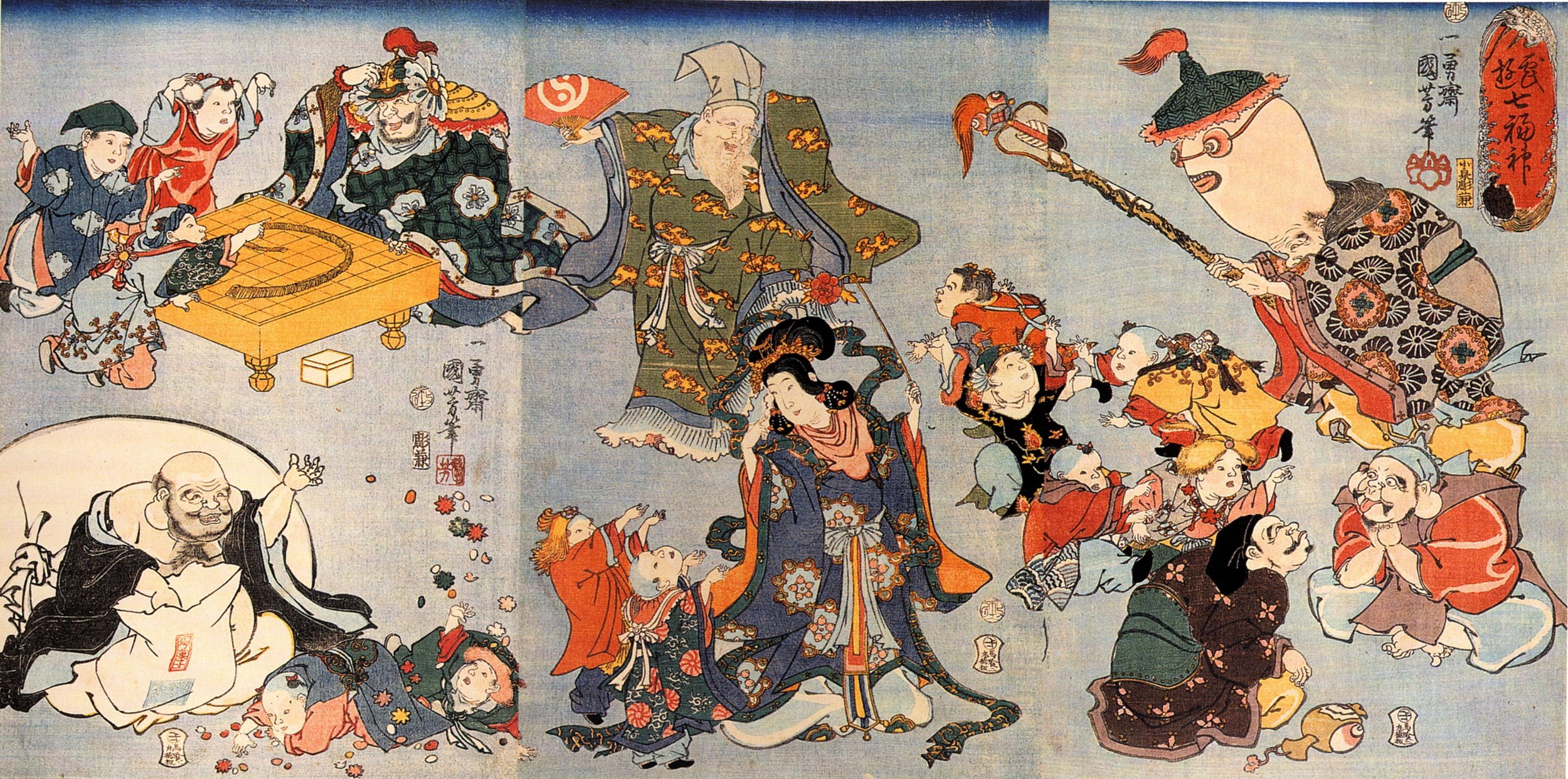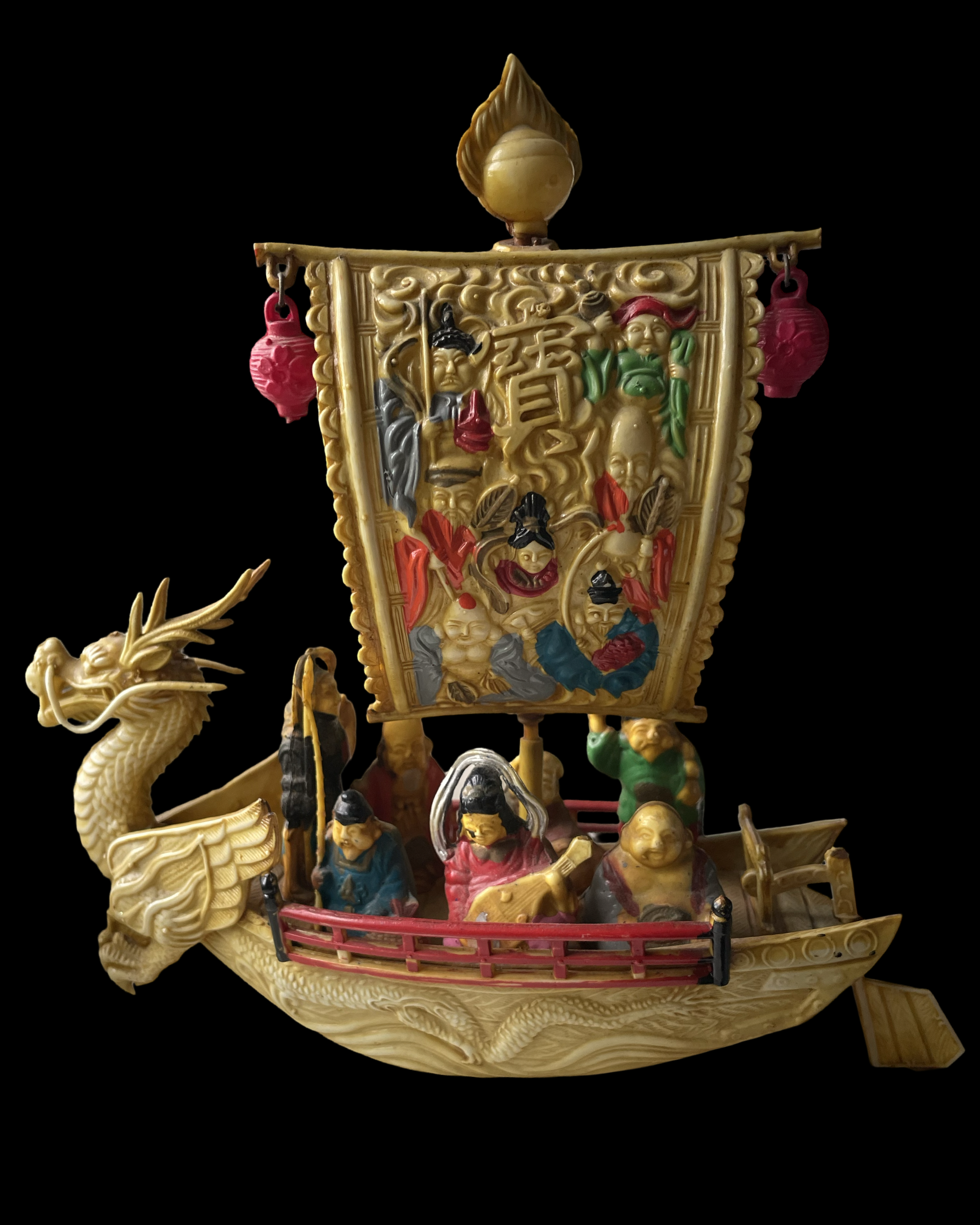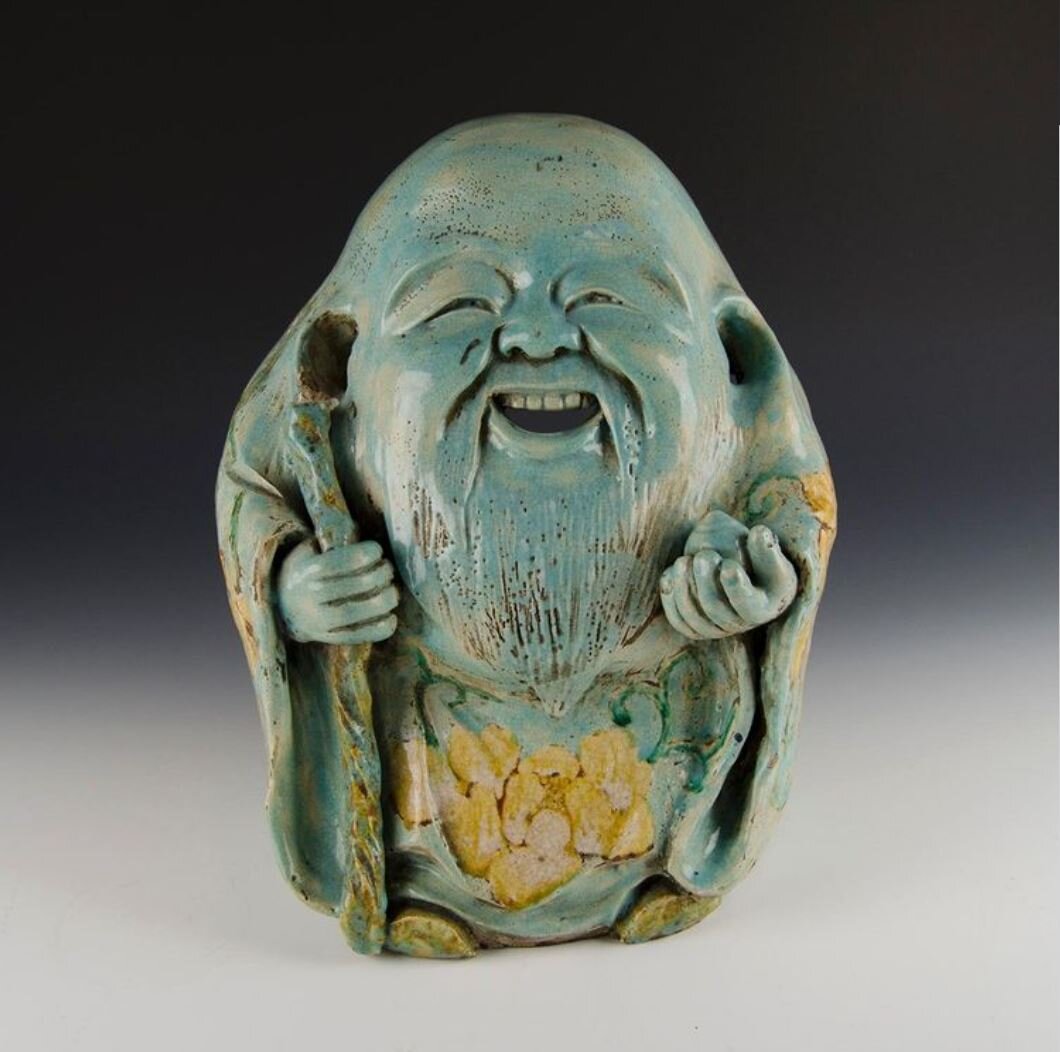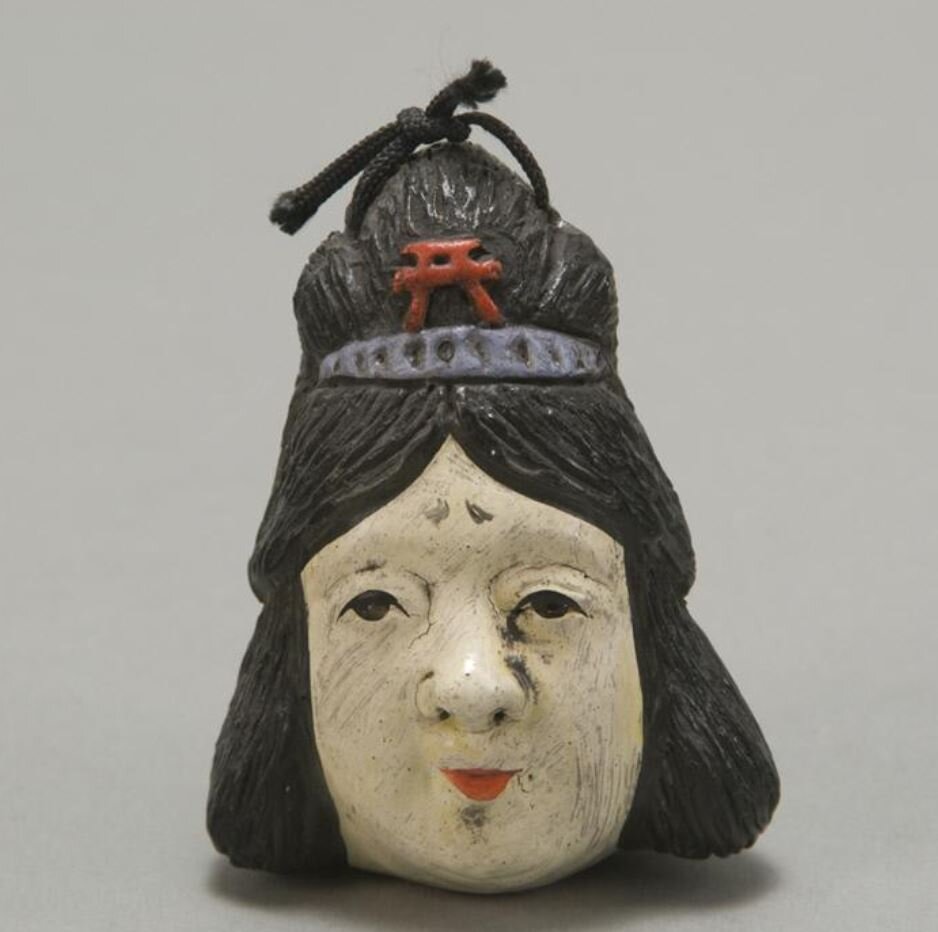Seven Lucky Gods
Public Domain, https://commons.wikimedia.org/w/index.php?curid=317148
In the tapestry of Japanese mythology, the Shichi-fuku-jin (“Seven Lucky Gods”) stand out as celestial patrons of abundance, happiness, and success. These deities, hailing from a blend of Shinto, Buddhist, Hindu, and Taoist traditions, have been revered for centuries as bringers of good fortune to those who pay homage to them. They are: Hotei (god of contentment/magnanimity/good fortune); Ebisu (god of fishing/business/commerce); Benten/Benzaiten (goddess of amiability/love); Bishamonten (god of dignity); Daikoku (god of wealth and prosperity); Jurōjin & Fukurokuju (gods of longevity).
Celluloid Figurine of the Seven Lucky Gods sailing on the Takarabune; c. 1940s; House of Good Fortune Collection
Although of ancient origin, the Seven Lucky Gods became popular as a group only in the 17th century. If you want to do a serious deep dive on this subject, The House recommends starting here. But in the meantime, here is a roll call:
Let us begin with Ebisu, the only god in the pantheon with purely Japanese origins. Ebisu is the embodiment of prosperity, especially in business and commerce. Often depicted as a rotund fisherman, Ebisu’s iconography includes a fishing rod and a large red sea bream, symbolizing the wealth of the ocean’s bounty. As a patron of fishermen and merchants, Ebisu’s smile is said to cast a net of good luck, capturing the essence of success for those who work with diligence and integrity. The sea is his domain and he is often depicted with seas creatures like jellyfish or whales. He is associated with the abundance of the sea and serves as the patron of sailors and those who live off its bounty. He is frequently paired with Daikoku.
Daikokuten is a stubby man with a swollen body, short legs, a short, pointed beard and a broad, shallow beret. Recognized by his wide grin and magic mallet, Daikoku is the god of wealth and farmers. His association with the five cereals makes him a vital deity for agricultural prosperity, and he is typically depicted standing on or near a bale of rice. Daikokuten’s mallet is believed to tap into the universe’s riches, granting wishes and ensuring a bountiful harvest for those under his benevolent gaze.
Bishamonten, the warrior god clad in armor, represents authority and dignity. As a guardian of the northern direction, Bishamonten’s spear pierces through evil, protecting his devotees from harm. His treasure pagoda (stupa) holds not just material wealth but also spiritual treasures, emphasizing the importance of inner richness and moral fortitude. Bishamonten is associated with warriors and is invoked to dispel enemies and illness. Sometimes he is trampling on demons.
Benzaiten, the only female among the Seven Lucky Gods is the muse of everything that flows—water, music, words, and knowledge. As a patroness of the arts, Benzaiten’s presence is invoked to inspire creativity and eloquence, making her an essential deity for artists, musicians, and scholars. She is usually depicted playing a musical instrument and is invoked to bring rain for bountiful harvests.
Hotei (also known as Budai or Laughing Buddha) reminds The House of Santa Claus: fat, jolly and often surrounded by children. The magnanimous monk with a five o’clock shadow is the epitome of contentment and generosity. He carries a “wish giving fan” and his large cloth sack, filled with endless treasures, is a testament to the joy of giving. (His name literally means “hemp sack.”) Hotei’s laughter is infectious, spreading happiness and reminding us that true wealth comes from a heart full of joy. He is the patron of bartenders and restauranteurs because those who drink and eat well are said to be influenced by Hotei.
Fukurokuju, with his elongated forehead, is the god of wisdom and longevity. Fukurokuju’s name is made up of three words — happiness (fuku); prosperity (roku); and longevity (ju). He is depicted as a small, old man with an extremely high skull, sometimes bare, and sometimes covered with a close-fitting cap. His scholarly demeanor and connection to the crane and turtle, both symbols of long life, highlight the virtues of intelligence and patience in achieving lasting success.
Jurōjin is often confused with Fukurokuju, which is understandable because (1) they both have large foreheads (though Fukurokuju’s is larger); (2) both are gods of longevity; and (3) they apparently inhabit the same body (what???). Often depicted with a long staff, his association with the deer, an animal known for its long life, underscores the desire for a life well-lived. Jurōjin’s wisdom is a reminder that good fortune also means having the time to enjoy the fruits of one’s labor.
Together, these divine figures traverse the land, bestowing their blessings upon those who honor them. Their annual journey aboard the Takarabune, a treasure-laden ship, is a cherished New Year tradition, symbolizing the arrival of good luck and fortune for the year ahead.
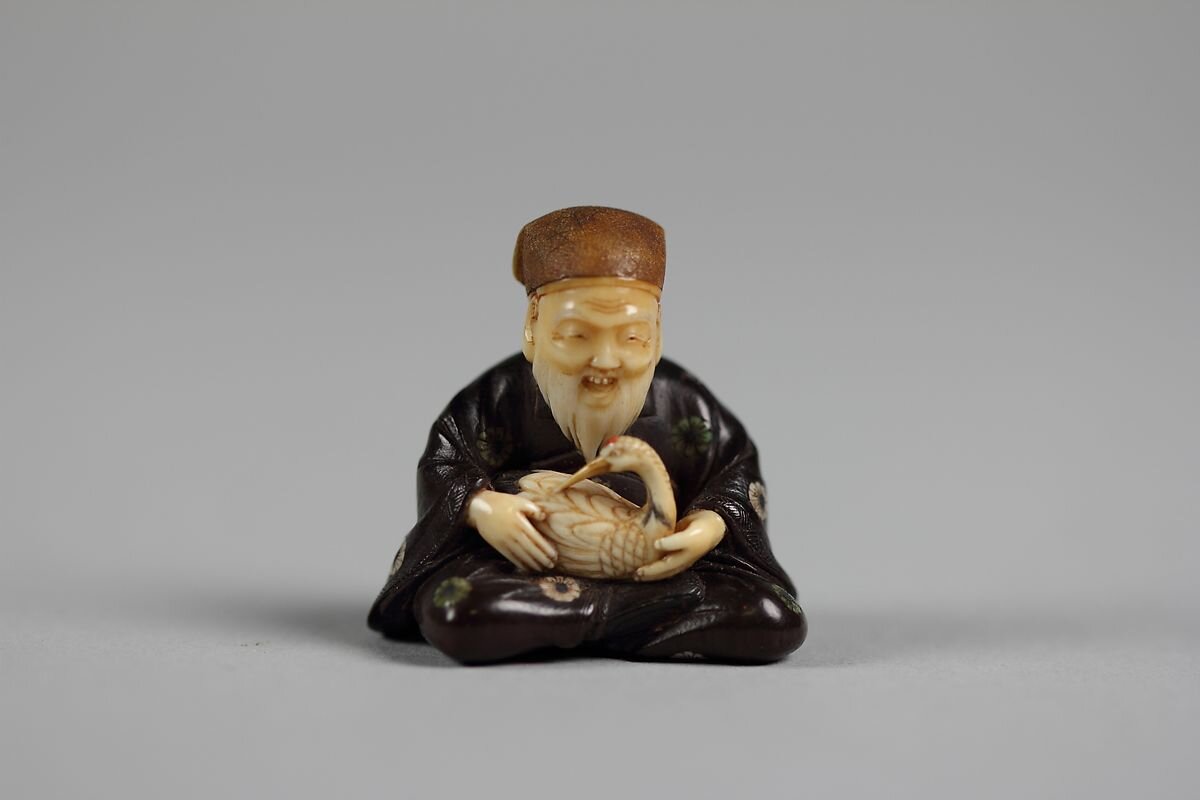
Jurojin, Metropolitan Museum of Art.
Netsuke of Bishamonten, Metropolitan Museum of Art.
Netsuke of Benten, Metropolitan Museum of Art.
Fukurokuju Cookie Mold (misidentified as Hotei), Mingei International
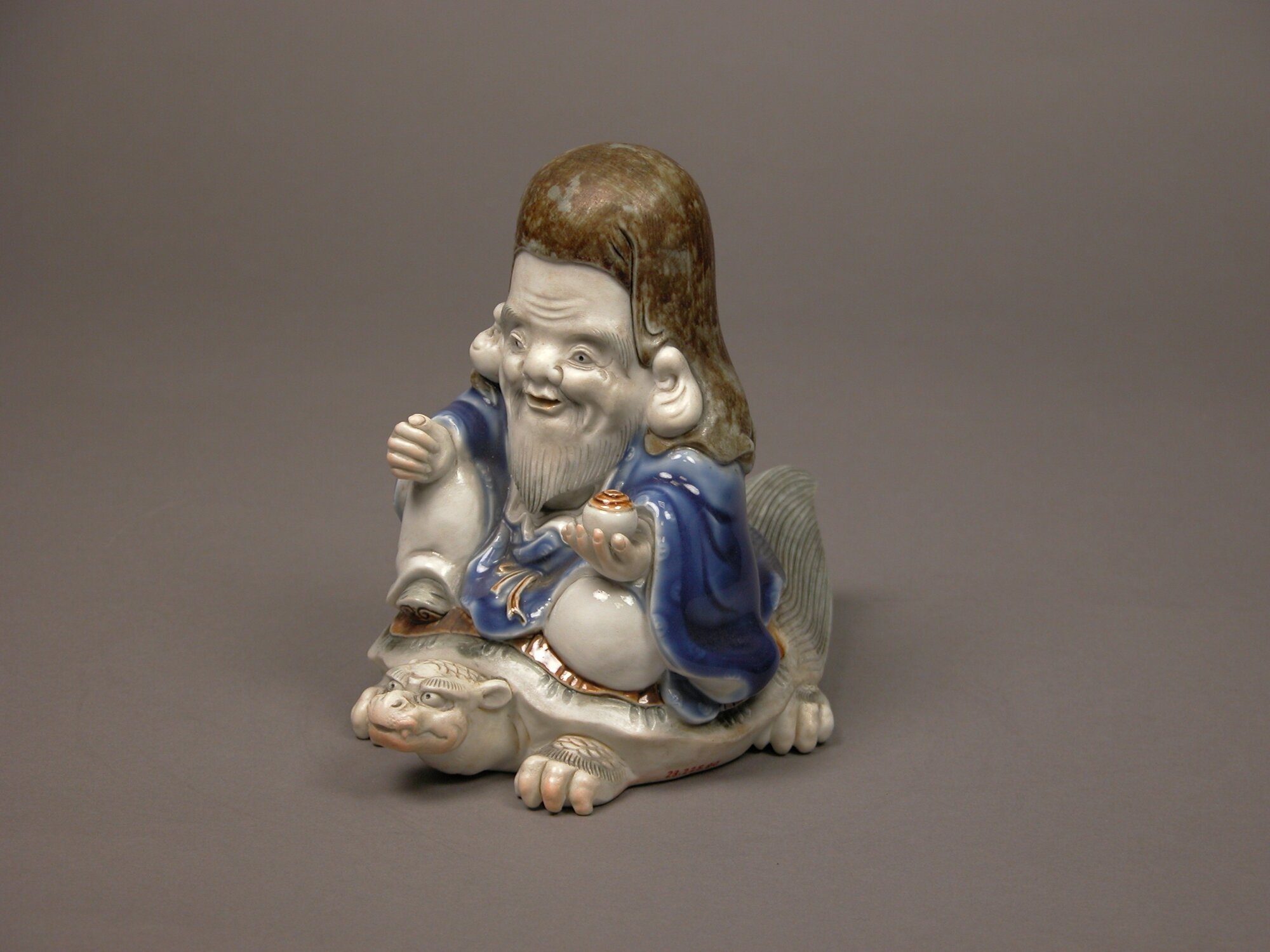
Jurojin, Metropolitan Museum of Art.
Seven Lucky Gods, Museum of International Folk Art
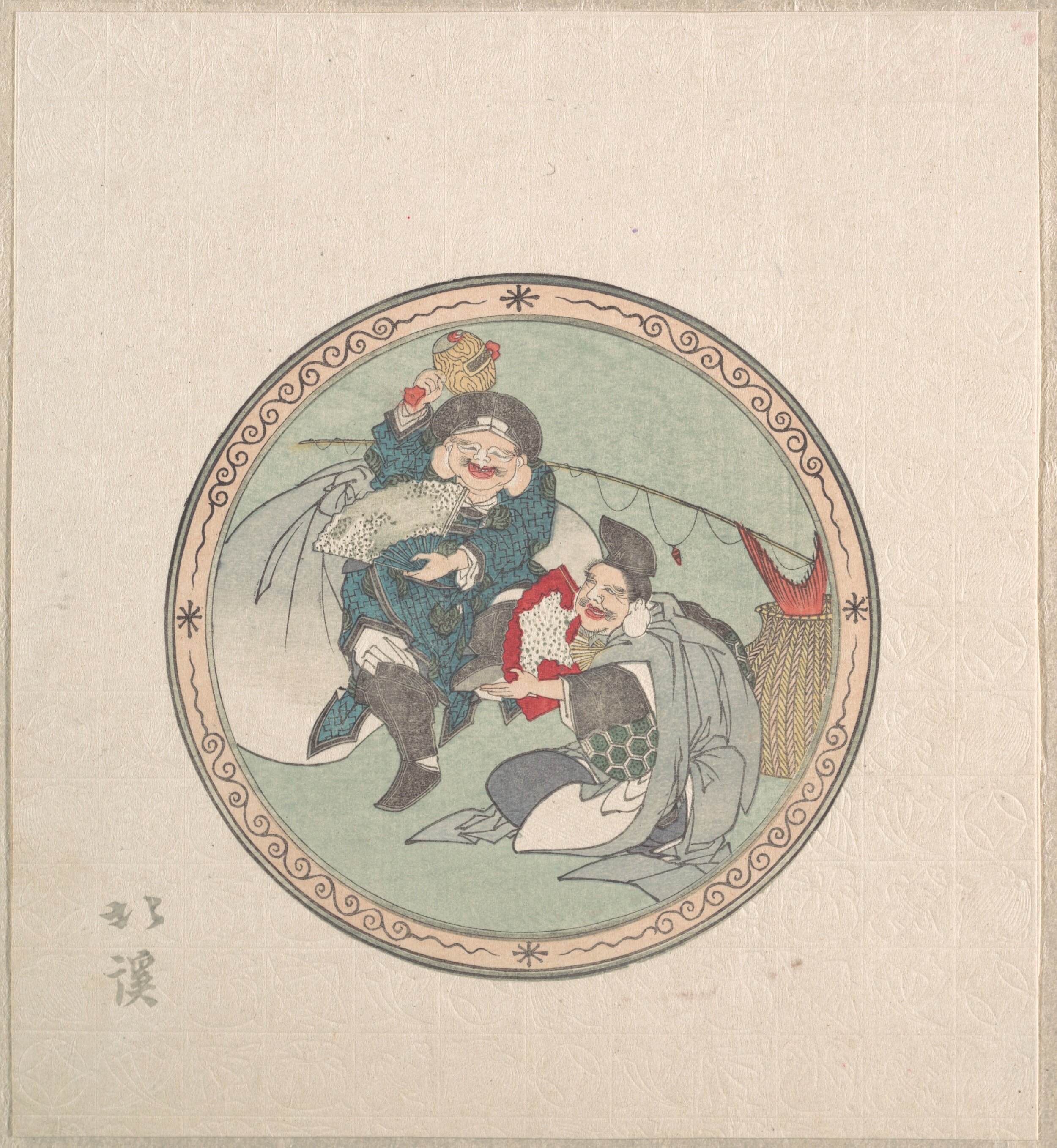
Daikoku and Ebisu, Metropolitan Museum of Art.
Hotei, God of Plenty
Hotei

Daikoku netsuke, Metropolitan Museum of Art.
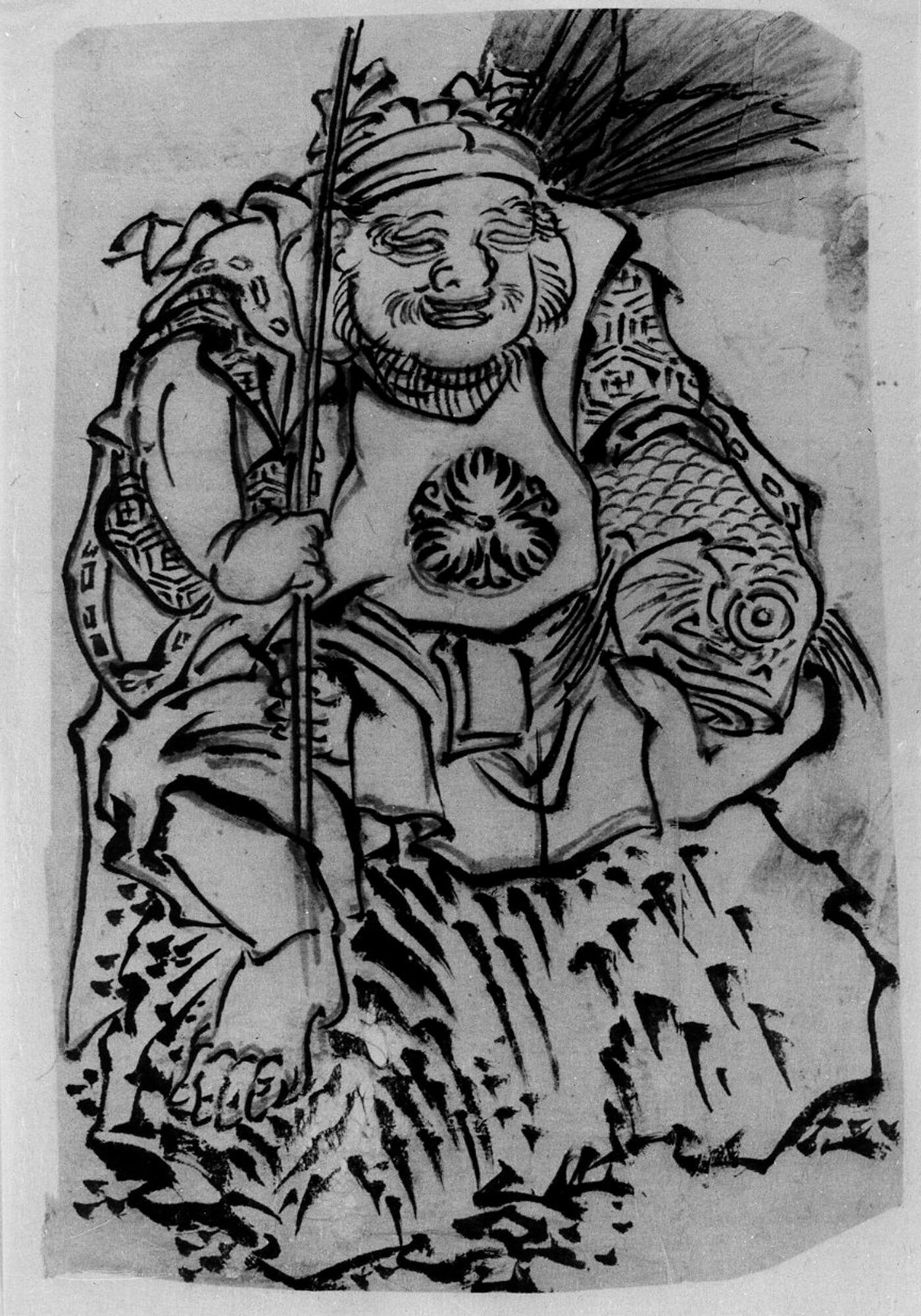
Ebisu
Jurojin Hand Warmer, Penn Museum

Hotei, or Laughing Buddha, House of Good Fortune Collection.
Bell in the form of Benten, Museum of International Folk Art.
Bell in the form of Bishamon, Museum of International Folk Art.

Fukurokuju Statue
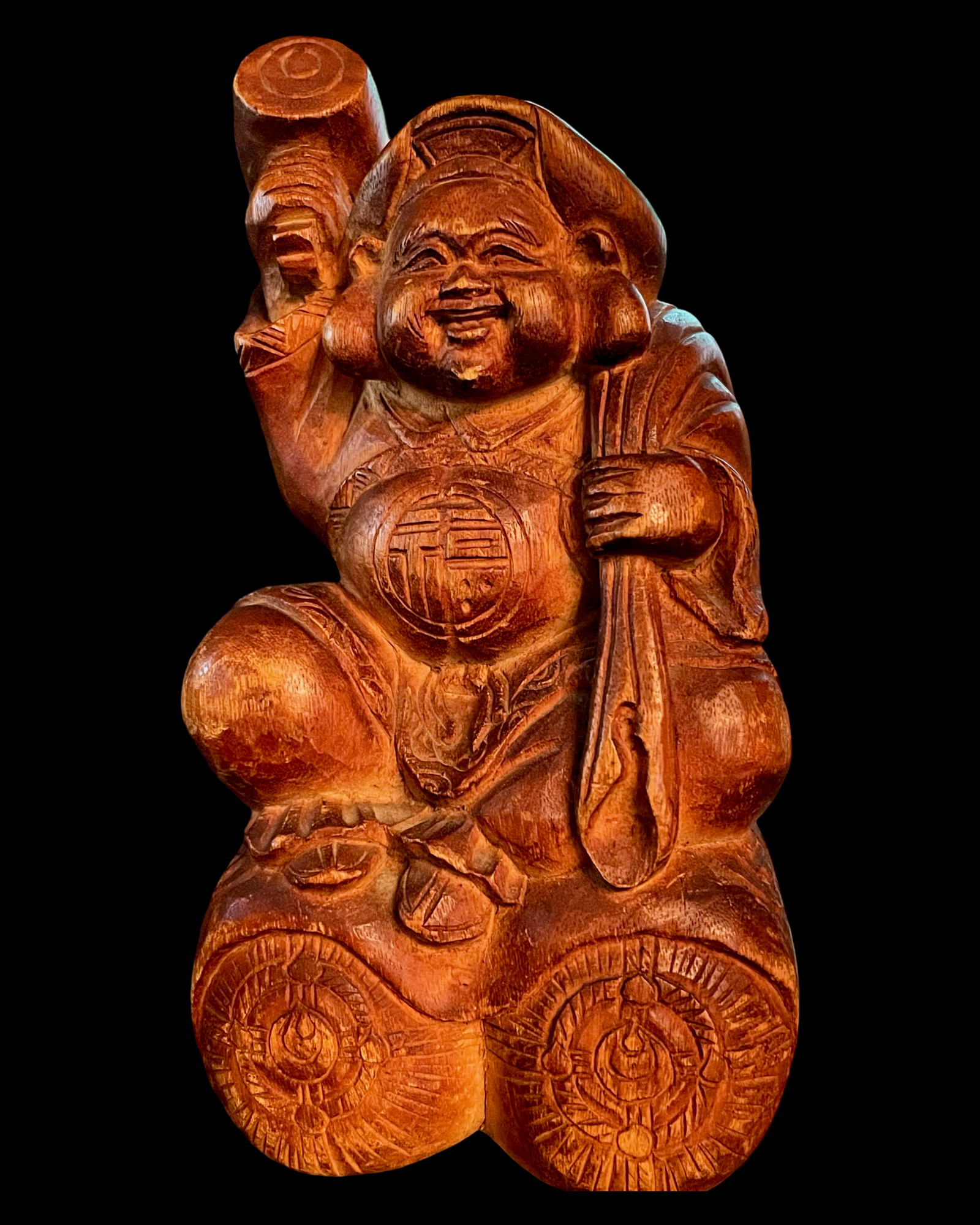
Wooden statue of Daikoku, House of Good Fortune Collection

Three Lucky Gods: Daikoku, Bishamonten & Ebisu; House of Good Fortune Collection

